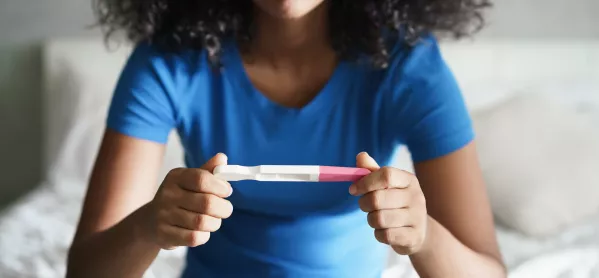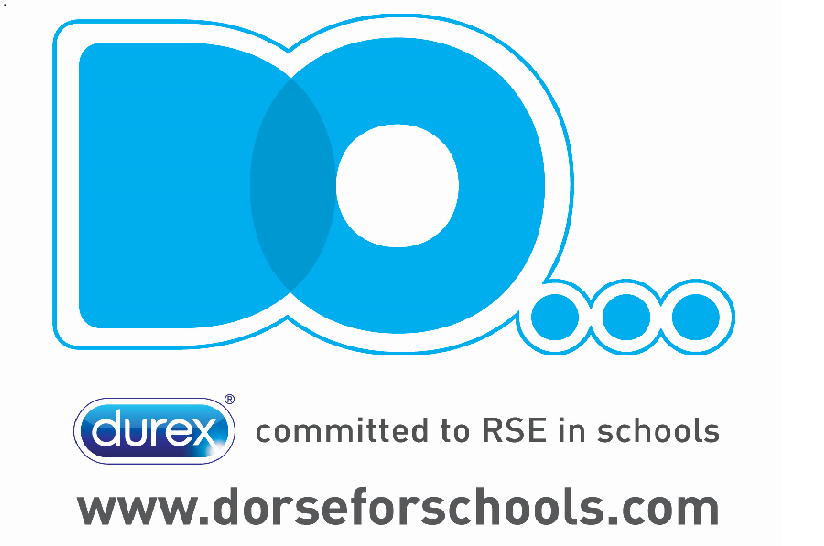How to talk to pupils about teenage pregnancy

In an ideal world, young people would be able to talk to their family about any subject that was on their mind. But life is never this simple. For example, many find it difficult talk to their family about sex, relationships or what their options are if they find themselves pregnant.
That’s why, from September 2020, the government will require all secondary schools to teach Relationships and Sex Education (RSE) that includes teaching about pregnancy.
Teachers providing RSE can be a source of balanced information that can help someone to make informed choices. They can also signpost the many services and resources that can help young people to access further help and advice, should it be required.
RSE guidance and curriculum planning
The Department for Education’s RSE guidance states that all pupils should learn about pregnancy options before they leave secondary school. “[By the end of secondary school] pupils should know…. that there are choices in relation to pregnancy (with medically and legally accurate, impartial information on all options, including keeping the baby, adoption, abortion and where to get further help).”
However, a recent Sex Education Forum survey of young people found that 12 per cent of 16- and 17-year-olds had not learned about pregnancy options at school. And it is also a subject that many teachers say they lack the confidence to deliver properly.
So it’s important not to leave learning about pregnancy options too late. A planned, coherent curriculum - using a tool such as the Sex Education Forum’s RSE Curriculum Design Tool - will map the content that should be covered by each age group.
The Sex Education Forum also offers training in teaching RSE, after finding that almost 30 per cent of teachers said they had never received any such training. However, pupils could approach any teacher they feel comfortable with, so everyone should have some idea of what services exist to help young people and how to access them.
Teenage pregnancy: the choices
Young people appreciate it when teachers are able to articulate clearly the choices that are available to them. For example, if you find that you are pregnant, at any stage of your life, you have three options about what to do next:
-
Carry on with the pregnancy and keep the baby.
- Carry on with the pregnancy and give the baby up for adoption.
- End the pregnancy by having a termination.
To make this decision, a young person will very probably need more information, and there are various places to access this, including school, friends and family, health services and online. Some sources will be more reliable than others.
Seeking advice
Researching information on the help available from the school nurse or other local services, including sexual health clinics and GPs, is really important so that you can tell pupils about how, when and where to access confidential, impartial help.
There is a lot of information and advice available online, too, which can be a good place to start if you know where to look. Sexual health services change all the time, so it is worth knowing that sites such as SH:24 and NHS Choices keep up-to-date lists of local clinics and opening times.
The Do...RSE website also has a range of resources and links that can help young people to find the information they need. For specific pregnancy advice both Sexwise and Brook have got very informative and easy-to-read pages on their websites aimed at young people.
There are also some excellent fact sheets available that can be printed off to help inform your teaching, including one on abortion from the Royal College of Obstetricians and Gynaecologists and the Faculty of Sexual and Reproductive Health, one on Confidentiality from The Sex Education Forum, and a lesson plan on problem solving from Do...RSE.
Answering young people’s questions
Teachers need to be prepared to answer questions that arise in the class and respond to pupils who might seek help one-to-one. The following are some of the common concerns raised by young people:
-
Will the doctor or nurse tell my parents that I am pregnant?
No, the doctor or nurse will not tell parents. As long as they are satisfied that the individual understands the implications of the decisions they are making and are not in an unsafe or abusive situation then the doctor/nurse will keep the information completely confidential. In order to determine that the young person understands their decision, the clinician will need to be sure that young person fulfils the Fraser Guidelines that guide their decision.
- Can I go to a sexual health clinic if I am under 16?
Yes, young people can visit a sexual health clinic and receive confidential advice and treatment if they are under 16. However, for young people under 13, the clinic may need to involve other agencies to make sure that the young person is safe.
- If I have a termination, will it stop me getting pregnant in the future?
No, having a termination will not have any effect on fertility in the future.
Rising to the challenge
Teaching RSE presents challenges unlike many other subjects. It can be an emotive topic for pupils and staff alike, and requires teachers to be both highly knowledgeable and sensitive to the needs and development of all their pupils.
While teachers cannot know the answer to every question posed and must always adhere to relevant safeguarding guidelines, they should be confident about the range of support and advice they can signpost to young people.
Dr Eleanor Draeger is senior RSE Trainer at the Sex Education Forum, and a sexual health doctor
For expert-led support and resources to facilitate the teaching of inclusive RSE in schools, visit DO…
To learn more about the Sex Education Forum’s work and details of their extensive training programme, visit www.sexeducationforum.org.uk. You can also join its countdown to statutory RSE.
